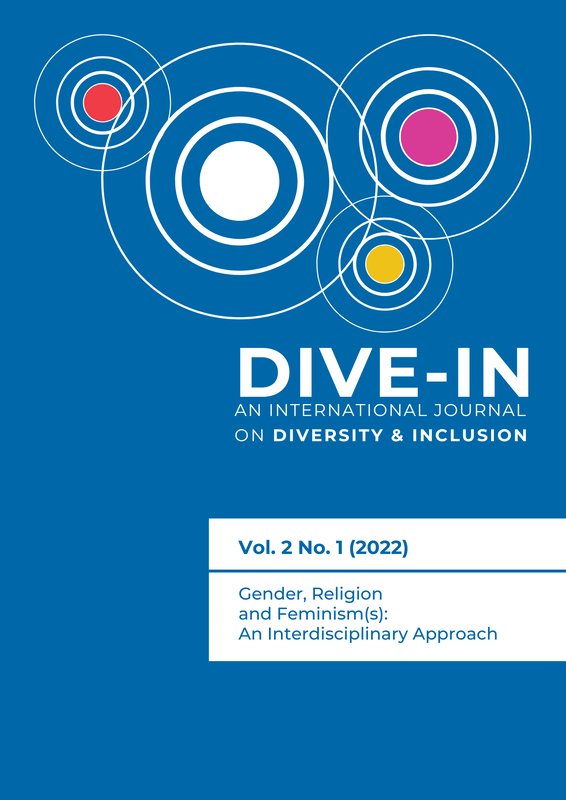Reason as a Gift from God: Radical Unitarians, Feminism and Mary Leman Grimstone
DOI:
https://doi.org/10.6092/issn.2785-3233/16036Keywords:
early feminism, Radical Unitarians, nineteenth-century England, Mary Leman Grimstone, ChristianityAbstract
Starting with a description of British Unitarianism, the present paper sheds light on how a particular expression of Christianity in eighteenth- and nineteenth-century England influenced the development of early feminist ideas. Unitarians, followers of a Christian denomination that rejects the doctrine of Trinity, believed that reason was a gift from God. They also upheld that both men and women were entitled to use their reason to interpret the Scriptures and arrive at rational conclusions. This article shows how those tenets were instrumental for writer Mary Leman Grimstone and her advocacy in favour of women’s rights. Grimstone, as part of Radical Unitarian circles, used literature to denounce the oppression of women, vindicate their right to proper education, and demand changes to the institution of marriage.
References
Apetrei, Sarah. 2010. Women, Feminism and Religion in Early Enlightenment England. Cambridge: Cambridge University Press.
Fox, William J. (ed.). 1833. “Review of Character; or Jew and Gentile.” The Monthly Repository VII, 545–51.
Gleadle, Kathryn. 1995. The Early Feminists. Radical Unitarians and the Emergence of the Women’s Rights Movement, 1831-51. New York: St. Martin’s Press.
Grimstone, Mary Leman. 1832. Woman’s Love. A Novel. Vol. III. London: Saunders and Otley.
Grimstone, Mary Leman. 1833. Character; or, Jew and Gentile: A Tale. Vol. I. London: Charles Fox.
Jacobs-Beck, Kim. 2012. “Dissenting Homiletics in Mary Wollstonecraft’s Vindication of the Rights of Woman.” Interdisciplinary Humanities 29(2), 62–79.
Kern, Kathi L. 1991. “Rereading Eve: Elizabeth Cady Stanton and The Woman’s Bible, 1885-1896.” Women’s Studies 19, 371–83.
M. L. G. 1834. “Men and Women.” Tait’s Edinburgh Magazine I, 101–3.
M. L. G. 1835a. “Female Education.” The Monthly Repository IX, 106–12.
M. L. G. 1835b. “Self-Dependence.” The Monthly Repository IX, 595–604.
M. L. G. 1835c. “Sketches of Domestic Life. No. II The Notable.” The Monthly Repository IX, 225–34.
M. L. G. 1835d. “Sketches of Domestic Life. No. VI The Coquette.” The Monthly Repository IX, 554–62.
McMillen, Sally G. 2008. Seneca Falls and the Origins of the Women’s Rights Movement. Oxford: Oxford University Press.
Michaelson, Patricia Howell. 1993. “Religious Bases of Eighteenth-Century Feminism: Mary Wollstonecraft and the Quakers.” Women’s Studies 22(3), 281–95.
Mineka, Francis E. 1944. The Dissidence of Dissent. The Monthly Repository, 1806-1838. Chapel Hill: University of North Carolina Press.
Reid, Charles J. Jr. 2012. “The Journey to Seneca Falls: Mary Wollstonecraft, Elizabeth Cady Stanton and the Legal Emancipation of Women.” University of St. Thomas Law Journal 10(4), 1123–84.
Robson, Ann. 1987. “The Noble Sphere of Feminism.” Victorian Periodicals Review 20(3), 102–7.
Rogers, Helen. 1999. “From ‘Monster Meetings’ to ‘Fire-Side Virtues’? Radical Women and ‘the People’ in the 1840s.” Journal of Victorian Culture 4(1), 52–75.
Rogers, Helen. 2000. Women and the People: Authority, Authorship and the Radical Tradition in Nineteenth-Century England. Aldershot: Ashgate.
Stanton, Elizabeth Cady & The Revising Committee. 1974 (1896-1898). The Woman’s Bible. Part I: The Pentateuch. Part II: Judges, Kings, Prophets and Apostles. Edited by Jane T. Walker. Seattle: Coalition Task Force on Women and Religion.
Strange, Lisa S. 1999. “Elizabeth Cady Stanton’s Woman’s Bible and the Roots of Feminist Theology.” Gender Issues 17, 15–36.
Stretton, Tim, & Krista J. Kesselring. 2013. “Introduction: Coverture and Continuity.” In Tim Stretton & Krista J. Kesselring (eds.), Married Women and the Law: Coverture in England and the Common Law World, 3–23. Montreal & Kingston: McGill-Queen’s University Press.
Taylor, Barbara. 2002. “The Religious Foundations of Mary’s Wollstonecraft Feminism.” In Claudia L. Johnson (ed.), The Cambridge Companion to Mary Wollstonecraft, 99–118. Cambridge: Cambridge University Press.
Taylor, Barbara. 2003. Mary Wollstonecraft and the Feminist Imagination. Cambridge: Cambridge University Press.
Watts, Ruth. 1989. “Knowledge Is Power-Unitarians, Gender and Education in the Eighteenth and Early Nineteenth Centuries.” Gender and Education 1(1), 35–50.
Watts, Ruth. 1998. Gender, Power, and the Unitarians in England, 1760-1860. Women and Men in History. London: Longman.
Watts, Ruth. 2011. “Harriet Martineau and the Unitarian Tradition in Education.” Oxford Review of Education 37(5), 637–51.
Wellman, Judith. 2004. The Road to Seneca Falls: Elizabet Cady Stanton and the First Woman’s Right Convention. Urbana and Chicago: University of Illinois Press.
Wollstonecraft, Mary. 1988 (1792). A Vindication of the Rights of Woman. Edited by Carol H. Poston. Second. New York: Norton.
Zaher, Claudia. 2002. “When a Woman’s Marital Status Determined Her Legal Status: A Research Guide on the Common Law Doctrine of Coverture.” Law Library Journal 94(3), 459–86.
Downloads
Published
How to Cite
Issue
Section
License
Copyright (c) 2022 Laura Valentina Coral Gomez

This work is licensed under a Creative Commons Attribution 4.0 International License.





